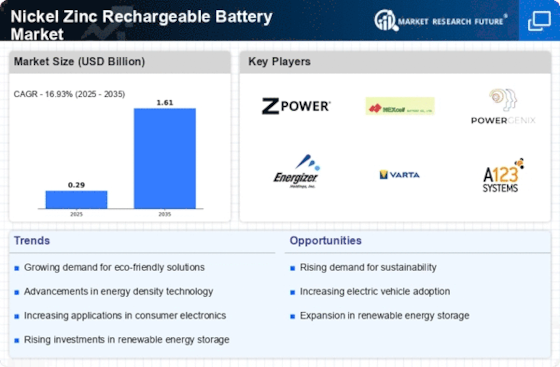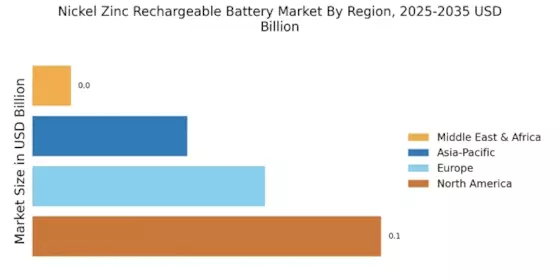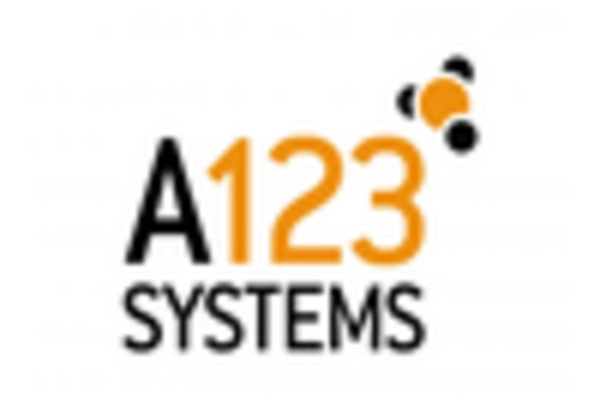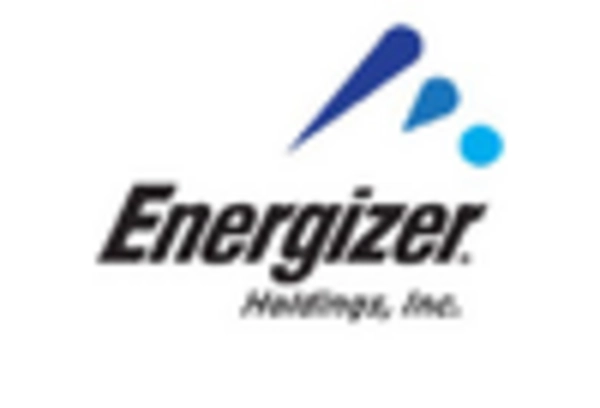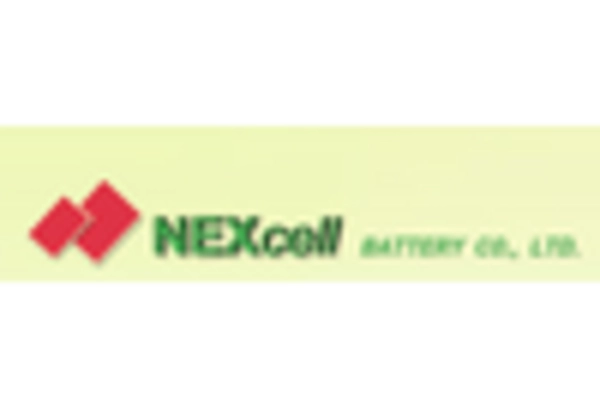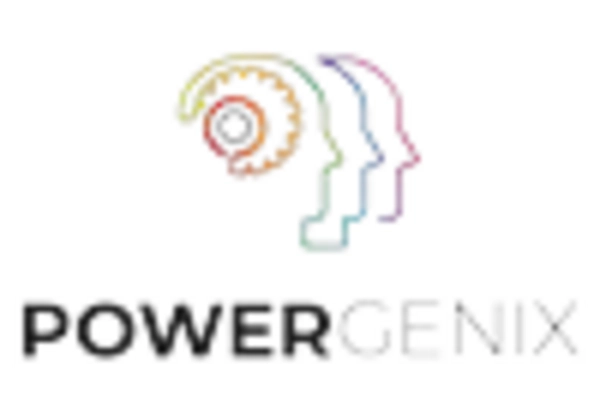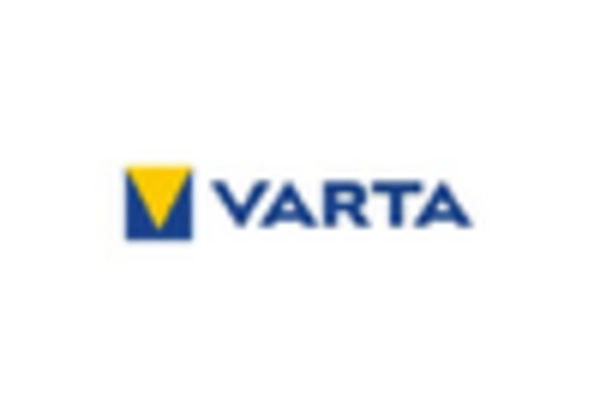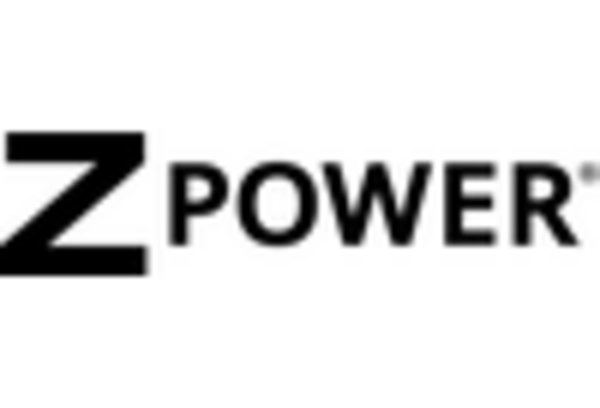Enhanced Energy Storage Solutions
The demand for enhanced energy storage solutions is driving the Nickel Zinc Rechargeable Battery Market. As renewable energy sources, such as solar and wind, gain traction, the need for efficient energy storage systems becomes paramount. Nickel zinc batteries offer a viable solution due to their ability to store and discharge energy effectively. Recent studies indicate that the energy storage market is expected to reach USD 200 billion by 2026, with nickel zinc batteries playing a crucial role in this expansion. Their longer cycle life and lower environmental impact compared to conventional batteries make them an appealing choice for energy storage applications. This trend suggests that the Nickel Zinc Rechargeable Battery Market is poised for growth as it caters to the increasing need for reliable energy storage solutions.
Increasing Adoption of Electric Vehicles
The rising adoption of electric vehicles (EVs) is a pivotal driver for the Nickel Zinc Rechargeable Battery Market. As consumers and manufacturers alike prioritize sustainable transportation solutions, the demand for efficient and reliable battery technologies escalates. Nickel zinc batteries, known for their high energy density and safety features, are becoming increasingly attractive for EV applications. According to recent data, the EV market is projected to grow at a compound annual growth rate (CAGR) of over 20% in the coming years. This growth is likely to spur investments in nickel zinc battery technology, as automakers seek alternatives to traditional lithium-ion batteries. Consequently, the Nickel Zinc Rechargeable Battery Market stands to benefit significantly from this trend, as it aligns with the broader shift towards cleaner energy solutions.
Supportive Government Policies and Incentives
Supportive government policies and incentives are fostering growth in the Nickel Zinc Rechargeable Battery Market. Many governments are implementing regulations and financial incentives to promote the adoption of clean energy technologies, including advanced battery systems. These initiatives often include subsidies for research and development, tax breaks for manufacturers, and grants for consumers purchasing electric vehicles. Recent reports suggest that government funding for battery technology could exceed USD 10 billion in the next few years. Such support is likely to accelerate the development and commercialization of nickel zinc batteries, positioning the Nickel Zinc Rechargeable Battery Market for substantial growth. This favorable regulatory environment may encourage further investments and innovations in the sector.
Rising Consumer Awareness of Environmental Impact
Consumer awareness regarding the environmental impact of battery technologies is a significant driver for the Nickel Zinc Rechargeable Battery Market. As individuals become more conscious of sustainability, they are increasingly seeking eco-friendly alternatives to traditional batteries. Nickel zinc batteries, which are recyclable and have a lower carbon footprint, align well with these consumer preferences. Market Research Future indicates that a substantial percentage of consumers are willing to pay a premium for environmentally friendly products. This shift in consumer behavior is likely to encourage manufacturers to invest in nickel zinc battery technology, thereby expanding the market. The Nickel Zinc Rechargeable Battery Market is thus expected to grow as it meets the rising demand for sustainable battery solutions.
Technological Innovations in Battery Manufacturing
Technological innovations in battery manufacturing are propelling the Nickel Zinc Rechargeable Battery Market forward. Advances in production techniques and materials have enhanced the performance and cost-effectiveness of nickel zinc batteries. For instance, improvements in electrode design and electrolyte formulations have led to increased energy density and cycle stability. The battery manufacturing sector is projected to witness a growth rate of approximately 15% annually, driven by these innovations. As manufacturers strive to optimize production processes, the Nickel Zinc Rechargeable Battery Market is likely to experience a surge in demand for high-performance batteries. This trend indicates a promising future for nickel zinc technology as it becomes more competitive in the battery market.


